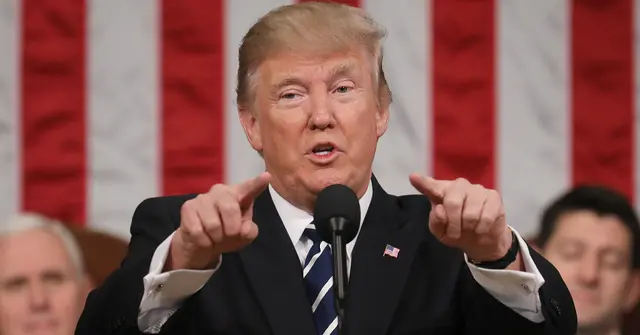By APD Writer Lu Jiafei
After days of nationwide criticism from U.S. police departments and civil rights groups, the White House has defended U.S. President Donald Trump’s recent remarks appearing to endorse police brutality as “a joke.”
Unfortunately, for the African-American community which has for long been subject to police brutality, the very fact that the commander-in-chief chose to draw inspiration from their daily suffering as fodder for laughter is saddening and troubling.
During what appeared to be his first major speech to law enforcement officials since taking office, Trump said to police in Long Island, New York last weekend, that they should not “be too nice” to suspects.
“When you see these towns and when you see these thugs being thrown into the back of a paddy wagon, you just see them throw in, rough, and I said, ‘Please don’t be too nice,’” said Trump.
“Like when you guys put somebody in the car and you’re protecting their head, you know, the way you put their hand over, like, don’t hit their head and they’ve just killed somebody, don’t hit their head, I said, ‘You can take the hand away, OK?” he added.
The remarks immediately drew criticism from police departments across the country as many in the U.S. law enforcement believed that Trump had delivered a "wrong message."
White House did not share others’ concerns, though.
Without offering any apologies on behalf of Trump, White House press secretary Sarah Huckabee Sanders just said at a daily brief this week that she believed Trump was “making a joke at the time.”
Does Trump need a reminder of how tense the relations between law enforcement officials and African-American community is right now and how his frivolous comments on the subject could dampen police efforts to rebuild the trust among the African-Americans?
Across the country, the majority of the African-Americans have long been viewing the police force with great suspicion.
According to a poll by the Pew Research Center in August 2014, a total of 62 percent blacks expressed at best "just some" confidence in local police to treat whites and blacks equally, with 46 percent expressing "very little" trust in police.
"We have a situation where many minority communities for so long have felt that law enforcement was coming in essentially to enforce laws against them, not to protect them," said Loretta Lynch, then U.S. attorney general, in July, 2015.
The bleak reality explains why police leaders nationwide immediately denounced Trump’s remarks.
Speaking to Washington radio station WTOP, Chuck Wexler, executive director of the Police Executive Research Forum said that the last thing needed was “a green light from the president of the United States for officers to use unnecessary force.”
Does Trump also need a reminder of the unfortunate death of the 25-year-old Freddie Gray under Baltimore police custody in 2015 to realize that rough treatment of African-American suspects, whose arrests are sometimes a result of police racial profiling, could lead to the tragic death?
For the African-American community in the country, Trump’s jest cuts deep into the psyche with racial wounds still bleeding as high-profile police brutality against them continue to emerge.
During a protest against police brutality and the criminal justice system after Gray’s death in 2015, a college student told me that they want change, not small changes, but radical ones for the criminal justice system.
The issue is, when you have a president who likes to joke about police brutality, how can you change a criminal justice system widely believed to be rigged against the African-American community?
After spending one year in Palestine covering the Israeli-Palestinian conflict between 2013 and 2014, Jiafei Lu moved to Washington, D.C. in 2015 and started covering the U.S. presidential election till the very end of Donald Trump's upset victory early November, 2016. Since then, he has been working as a diplomatic correspondent for Xinhua.
 简体中文
简体中文

